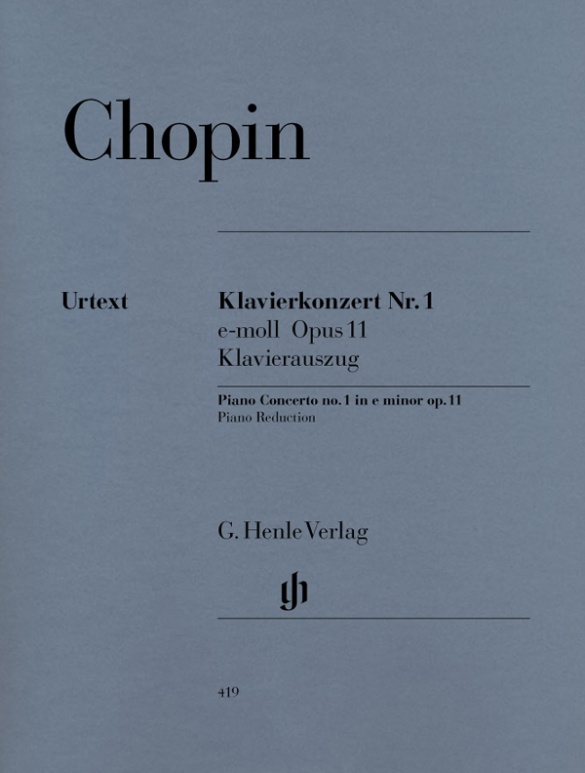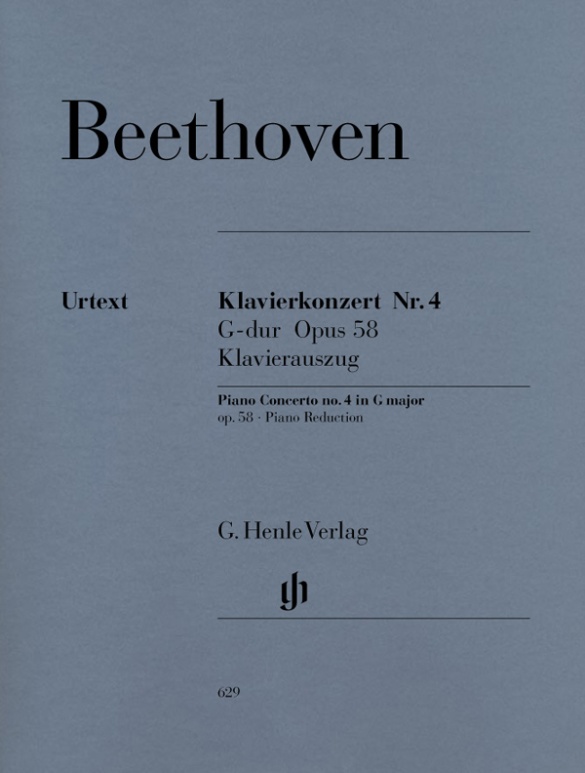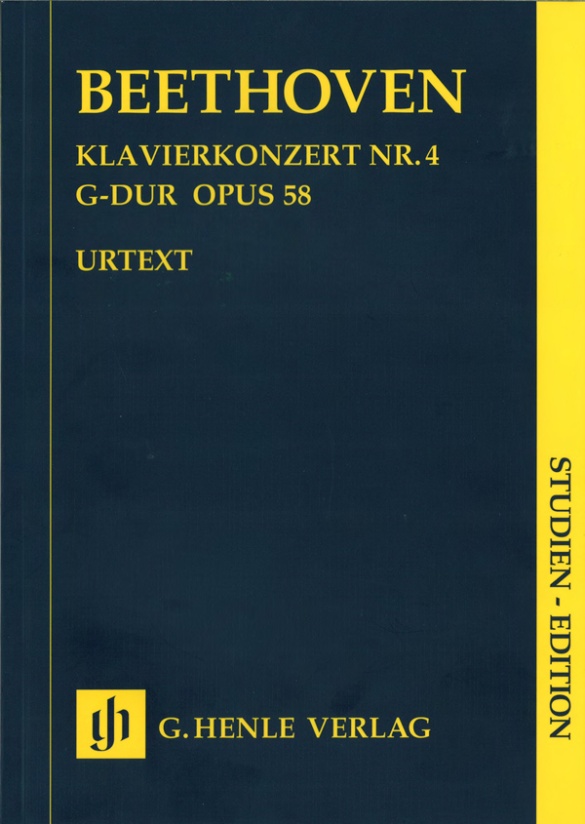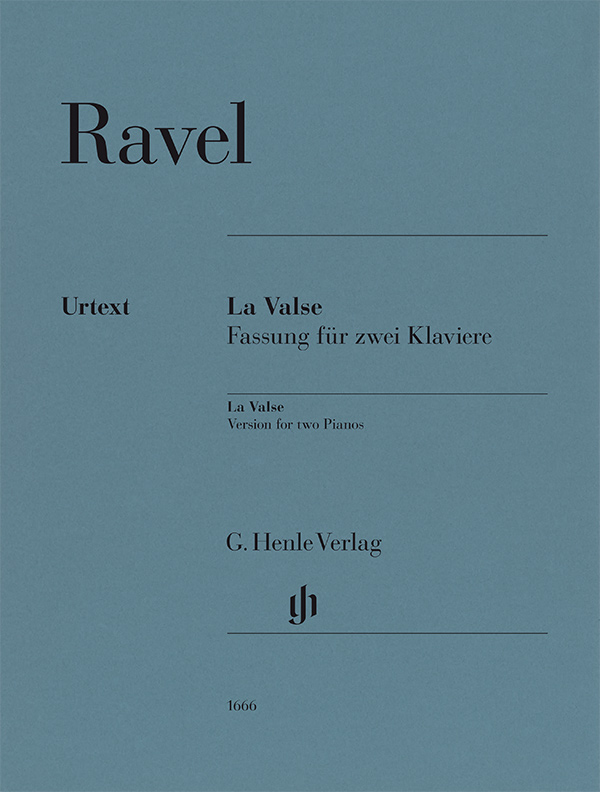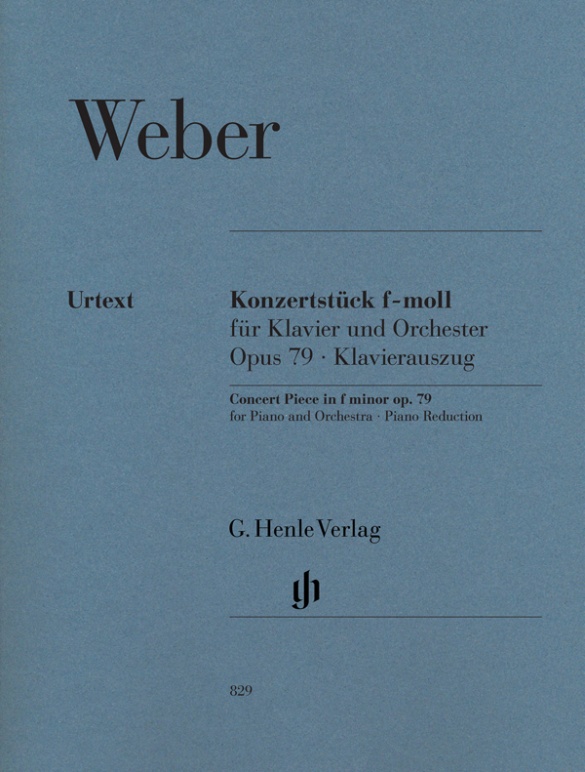

Carl Maria von Weber
Konzertstück en fa mineur op. 79 pour piano et orchestre
Pour deux raisons, Weber avait hésité à présenter au public son opus 79, connu en tant que «Konzertstück». Comme il l’écrit au journaliste musical Friedrich Rochlitz, l’expérience montre que les concertos en tonalité mineure sont moins bien acceptés par le public. De plus, il craignait d’être pris pour un «charlatan musical», car tout en composant il lui était venu des visions d’une histoire d’amour dramatique du temps des croisades, lesquelles marquaient de leur empreinte le caractère de l’oeuvre.
Ces préoccupations sont toutefois sans fondement; le «Konzertstück» virtuose conquiert les salles de concert du monde entier. Il est désormais disponible en édition Urtext. Le célèbre pianiste Marc-André Hamelin a élaboré le doigté.
CONTENU/DÉTAILS
CONCERNANT LE COMPOSITEUR
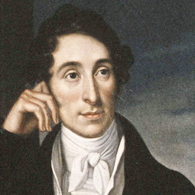
Carl Maria von Weber
L’un des compositeurs allemands d’opéras les plus importants avant Wagner, qui s’est investi par son œuvre et ses écrits en faveur d’un opéra allemand. Sa gloire repose sur le «Freischütz» qui a été très largement salué comme opéra national allemand. Ses œuvres instrumentales (œuvres pour orchestre, concertos pour instruments solistes, musique de chambre, œuvres pour piano) reposent en grande partie sur des modèles classiques, mais annoncent déjà l’esprit romantique.
| 1786 | Né le 18 ou 19 novembre à Eutin. Années de pérégrinations avec la «Webersche Schaupielergesellschaft» (Troupe des comédiens de Weber). Il joue de petits rôles d’enfant. |
| 1797 | La troupe se produit à Salzbourg où il prend, à partir de 1798 des cours de composition auprès de Michael Haydn. |
| 1800 | Création à Freiberg de son premier opéra romantico-comique «Das Waldmädchen» (La Fille des bois). |
| depuis 1803 | Années d’études à Vienne chez Georg Josef Vogler. |
| 1804–06 | Premier engagement comme maître de chapelle à Breslau (Wroclaw). |
| 1810 | Création de l’opéra romantique «Silvana» à Francfort-sur-le-Main. Concerto pour piano en Ut majeur n° 1 op. 11. |
| 1811 | Concertos pour clarinette en Fa mineur n° 1 op. 73 et en Mi bémol majeur n° 2 op. 74 commandés par Maximilien de Bavière; 1812 Concerto pour piano en Mi bémol majeur n° 2 op. 32. |
| 1813–16 | Directeur d’opéra et maître de chapelle du Théâtre des États à Prague. À partir de 1817 maître de chapelle à la cour de Dresde. |
| 1819 | Pièces pour piano «Rondo brillante» en Mi bémol majeur op. 62, «Invitation à la danse» en Ré bémol majeur op. 65, «Pollaca brillante» en Mi majeur op. 72. Trio pour piano, flûte et violoncelle en Sol mineur op. 63. |
| 1821 | Création à Berlin de l’opéra romantique «Le Freischütz» op. 77; son sujet et la musique lui valent d’être salué comme opéra typiquement allemand. Il intègre toutefois des éléments allemands, français et italiens. Konzertstück en Fa mineur pour piano et orchestre op. 79 qui ouvre la voie aux concertos en un mouvement du XIXe siècle. |
| 1823 | Création à Vienne d’«Euryanthe» op. 81. |
| 1826 | Création à Londres d’«Oberon». Il meurt le 5 juin à Londres. |
About the Authors

Ernst Herttrich (Editeur)
Dr. Ernst Herttrich, born in 1942 in Würzburg, read musicology, history, German and theology at the universities in Würzburg and Cologne. In 1970 he earned his doctorate in Würzburg with a study of the expression of melancholy in the music of Mozart.
From 1970 to 1990 he was an editor at G. Henle Publishers in Munich, after which he was Head of the Beethoven Complete Edition for over 15 years. In 1999 he took over as Head of the Beethoven-Haus Publishers, and from 2001 was made Head of the Beethoven-Archiv, the research centre at the Beethoven-Haus.
He has been a visiting professor at Meiji Gakuin University in Tokyo and has undertaken several lecture tours both there and to Kyoto. His research interests include source studies, editorial techniques and music history. Herttrich’s publications include “Beethoven. Liederkreis an die ferne Geliebte” (Bonn 1999) and “Ludwig van Beethoven. Biographie in Bildern” (Bonn, 2000). Herttrich has edited over 100 Urtext editions for G. Henle Publishers.
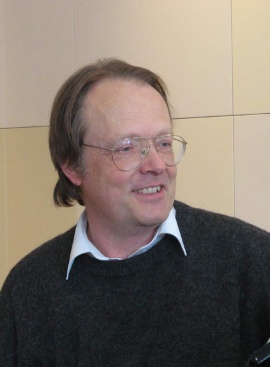
Johannes Umbreit (Réduction pour piano)
Prof. Johannes Umbreit studied the piano at the Musikhochschule in Munich. From 1987 onwards he was a regular accompanist at courses given by Wolfgang Schneiderhan, Thomas Brandis, Ljerko Spiller, Igor Ozim, Olga Woitowa, Ernő Sebestyén, Walter Nothas, F. Andrejevsky, Denis Zsigmondy and Zakhar Bron amongst others. He has appeared in numerous radio and TV broadcasts and plays chamber music with members of the Bavarian State Orchestra, the Munich Philharmonic Orchestra and the Bavarian Radio Symphony Orchestra.
He is on the jury of different international competitions and has been invited to several international music festivals. Umbreit was a teacher for almost ten years at the Musikhochschule in Munich and at the same time a lecturer for chamber music and piano accompaniment at the Richard Strauss Conservatory. Since 2008 he has been a lecturer at the Hochschule für Musik und Theater München. As the long-serving managing director of the Richard-Strauss-Gesellschaft, he was made an honorary member of the board in 2009. In May 2011, the Bavarian Minister of Culture appointed Johannes Umbreit an honorary professor of the Hochschule für Musik und Theater München on the suggestion of its academic senate.
.jpg)
Marc-André Hamelin (Doigtés)
Informations sur la sécurité du produit

G. Henle Verlag
Vous trouverez ici des informations sur le fabricant du produit.G. Henle Verlag e.K.
Forstenrieder Allee 122
81476 München
Allemagne
info@henle.de
www.henle.com
Wie oft muss man sich über ungelenke, schlecht klingende Klavierauszüge ärgern ... Umbreit zeigt, dass es auch anders geht: Seine Bearbeitung liest sich leicht vom Blatt und klingt dennoch voll und orchestral. Eine Wohltat!
Schweizer Musikzeitung, 2012recommandations
autogenerated_cross_selling
Autres éditions de ce titre
Autres éditions de ce titre


